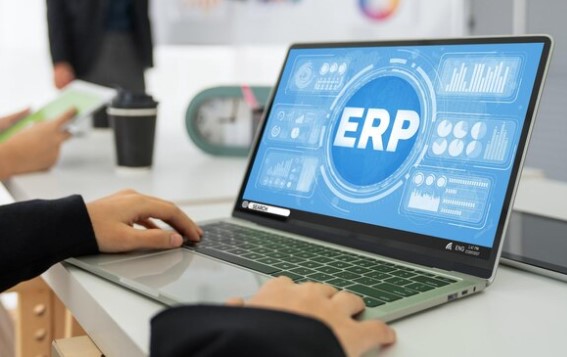Best ERP Solutions for Ecommerce Businesses
Enterprise Resource Planning (ERP) plays a pivotal role in the success of ecommerce businesses, streamlining operations and enhancing overall efficiency. As the demand for integrated solutions grows, choosing the right ERP system becomes crucial for achieving seamless business processes. In this section, we’ll explore some of the best ERP solutions tailored for ecommerce businesses.
1. SAP Commerce Cloud
Sophisticated and Scalable
SAP Commerce Cloud is a robust ERP solution known for its scalability and sophistication. It seamlessly integrates with various ecommerce platforms, providing real-time data insights and facilitating efficient order processing. With a focus on customer experience, SAP Commerce Cloud is a top choice for large-scale ecommerce enterprises.
2. Oracle NetSuite SuiteCommerce
Unified Commerce Platform
Oracle NetSuite SuiteCommerce is a comprehensive ERP solution designed for unified commerce. It combines ecommerce, order management, and financials in a single, cloud-based platform. This integration enables businesses to manage their entire operation from a centralized dashboard, ensuring consistency and accuracy across all processes.
3. Microsoft Dynamics 365 Commerce
Intelligent and Adaptable
Microsoft Dynamics 365 Commerce is an intelligent ERP solution that adapts to the evolving needs of ecommerce businesses. With features like AI-driven insights and omnichannel capabilities, it enhances customer engagement and empowers businesses to make data-driven decisions. Its seamless integration with Microsoft 365 further contributes to its popularity.
4. Shopify Plus
Simplicity and Flexibility
For smaller and medium-sized ecommerce businesses, Shopify Plus offers a user-friendly ERP solution. Known for its simplicity and flexibility, Shopify Plus provides essential features like order processing, inventory management, and customizable reporting. It’s an ideal choice for businesses looking for a straightforward yet effective ERP solution.
5. Epicor Commerce Connect
Tailored for Growing Businesses
Epicor Commerce Connect is tailored for growing ecommerce businesses. It offers a scalable and modular ERP solution that can adapt to the changing needs of the business. With features like real-time inventory tracking and order fulfillment, it addresses the specific challenges faced by ecommerce enterprises in their growth phase.
6. Infor CloudSuite Commerce
Comprehensive Cloud Solution
Infor CloudSuite Commerce is a comprehensive cloud-based ERP solution that caters to the unique requirements of ecommerce. It provides tools for managing the entire customer journey, from browsing to post-purchase support. With a focus on user experience, Infor CloudSuite Commerce enhances the efficiency of ecommerce operations.
7. Acumatica Commerce Edition
Flexible and Customizable
Acumatica Commerce Edition stands out for its flexibility and customization options. It offers a scalable ERP solution with features like order management, inventory control, and financials. Its cloud-based architecture ensures accessibility from anywhere, making it a suitable choice for ecommerce businesses with diverse operational needs.
8. Openbravo Commerce Suite
Open Source and Agile
For businesses seeking an open-source ERP solution, Openbravo Commerce Suite provides agility and adaptability. It’s particularly beneficial for businesses with unique requirements, offering customization options without the constraints of a proprietary system. Openbravo Commerce Suite empowers ecommerce businesses to tailor their ERP system to match their specific workflows.
Conclusion
Selecting the best ERP solution for an ecommerce business requires a careful evaluation of the business’s size, specific needs, and growth trajectory. The aforementioned ERP systems cater to different scales of ecommerce operations, ensuring that businesses can find a solution that aligns with their unique requirements. Before making a decision, it’s advisable to consider factors such as integration capabilities, scalability, and ongoing support to ensure a successful ERP implementation.
FAQs
- Q1. How do I determine which ERP system is best for my ecommerce business? A: Assess your business’s size, specific requirements, and growth plans. Consider factors like scalability, integration capabilities, and the level of customization offered by ERP vendors.
- Q2. Are there ERP solutions specifically designed for small ecommerce businesses? A: Yes, ERP solutions like Shopify Plus and Acumatica Commerce Edition are tailored for smaller and medium-sized ecommerce businesses, providing essential features in a user-friendly interface.
- Q3. What role does scalability play in selecting an ERP solution for ecommerce? A: Scalability is crucial for accommodating the growth of your ecommerce business. A scalable ERP solution can adapt to increased data volume, user accounts, and transaction complexities.
- Q4. Can ERP solutions integrate with existing ecommerce platforms? A: Yes, many ERP solutions, including SAP Commerce Cloud and Oracle NetSuite SuiteCommerce, are designed to integrate seamlessly with various ecommerce platforms, ensuring a smooth transition and continuity in operations.
- Q5. How long does it take to implement an ERP system for ecommerce? A: The implementation timeline varies based on factors such as the complexity of customization, the size of the business, and the chosen ERP solution. On average, the process can take several weeks to months, with careful planning and execution.
